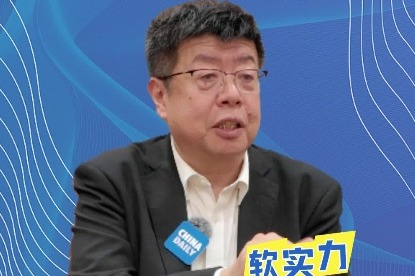A healthy partnership

China's support has evolved to not only provide medical professionals, but also make it easier for Africans to access care, says WHO expert
China's support for healthcare in Africa has gone beyond the basics and now is synergized with countries' key priorities, according to one of the region's top health experts.
Matshidiso Rebecca Moeti, the World Health Organization's regional director for Africa, says China originally just sent medical workers to fill gaps in resources, but today is helping to build hospitals, as well as vital supporting infrastructure such as roads and airports.
| WHO expert Matshidiso Rebecca Moeti met with local health officials in Beijing recently. Provided to China Daily |
"The thinking has evolved to a more pragmatic approach," she says during a recent visit to Beijing to meet with local health officials. "The Chinese now look at the national health strategies in African countries, while countries also articulate the priority areas in which they need help. There is more of a mutual interest."
This means China is not only helping to boost health capacity, she says, but also making sure there is training for medical professionals, so that they can work in the new hospitals being built and provide good standards of care.
For example, the Chinese government has provided strong support to Sierra Leone, one of the countries worst affected by the Ebola outbreak in late 2013, and has helped the African Union to establish an organization to work on cross-border surveillance and outbreak response.
Moeti, the WHO's first female regional director for the continent, says economic and people-to-people exchanges between China and Africa have become closer, benefiting both sides' health sectors.
The construction of roads by Chinese contractors is already making a difference in parts of central Africa previously cut off by dense forest, she says, as people who are ill can now travel more easily to a medical clinic for treatment.
"I believe that what comes next is to try and find ways to make sure that countries have access to affordable, safe medicine manufactured by Chinese companies and medical equipment."

Moeti, who is from Botswana, joined the WHO in 1999. Prior to that, she worked with UNAIDS as a team leader for the Africa and Middle East desk in Geneva, from 1997 to 1999.
Although many African nations still need significant international support, she says what is needed is a good balance of domestic resources and strategic partnerships with donors and other countries.
She says one important area of the health sector that needs improving is financing, so that more money can be invested in preventive services and treatment to reach a larger proportion of the overall population.
WHO advises countries to invest at least $44 a person in healthcare, which covers a basic package. Moeti says that, for an expanded package, one that takes into account HIV treatment and aspects of preventive medicine, the investment needs to be in the area of $65 to $80 a person.
"Less than 50 percent of countries are investing this much, so we need big investment and smart collaboration with international partners. We have a long way to go to fill the gap in financing."
A bigger emphasis must be placed on prevention, she says. "In Africa, we have had a very serious HIV epidemic, and countries have done well in bringing down the level of infections. But we still need to continue to educate young people, ensure that they practice safe sex and prevent HIV transmission."
It is the same for illnesses like diabetes, cancer and hypertension, she adds, urging nations must educate people and help them adopt health lifestyles - no excess alcohol, healthy diets and plenty of exercise.
Another important issue for healthcare development is the emphasis on health insurance and the requirement to pay upfront for treatment, she says, adding that, even today, people without insurance who want to see a doctor must first find the cash for consultations, medicine and any tests such as X-rays.
"This isn't efficient. A better way is to have a national health insurance system, so we are helping countries to redesign their systems."
chenyingqun@chinadaily.com.cn
(China Daily Africa Weekly 04/15/2016 page15)
Today's Top News
- China's grain output hits new high in 2025
- Trump drops EU tariff threat after deal framework over Greenland in Davos
- China's message in Davos draws praise
- Consensus, not coercion, key to Ukraine crisis
- Wide view seen as key to full grasp of China
- Trump seeks immediate talks on buying Greenland































